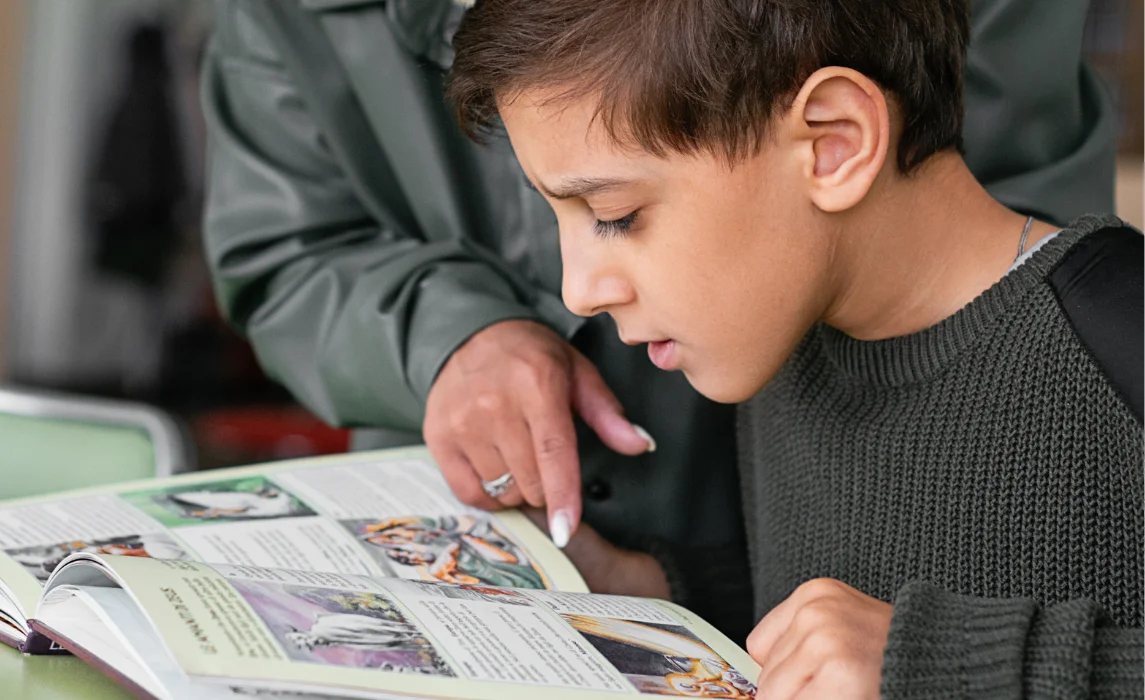10 Effective Ways to Help Kids Focus: Practical Tips for Parents

Yes—finger plays, clapping games, and dance routines that use hand gestures all help. Combine rhythm and repetition for deeper learning.
Send home simple activity ideas, kits, or worksheets. Offer short instructions and encourage family involvement. Regular practice builds lasting progress.
Try origami, sticker scenes, stringing pasta, or painting with Q-tips. Crafts that use small pieces build precision and control.
.webp)
Helping kids focus can sometimes feel like an uphill battle. From buzzing gadgets to busy schedules, distractions are everywhere. But focus is a skill—just like riding a bike—that children can strengthen with practice. With the right strategies, you can guide your child to stay on task, build confidence, and enjoy learning.
Key Takeaways
- Kids can improve focus with practice and the right environment.
- Short, fun activities and breaks boost concentration.
- Parents play a big role by modeling good focus habits.
1. Know Your Child’s Attention Span
Every child’s focus has limits. A simple rule: attention span equals about 2–3 minutes for every year of age. For example, a 7-year-old may stay focused for around 15 minutes. Use this as a guide when planning homework, reading, or activities.
2. Create a Distraction-Free Zone
Kids focus best in a calm environment. Set up a quiet spot for schoolwork with no TV, phones, or loud noises. Keep the table or desk clear, so the only thing in front of them is the task at hand.
3. Break Tasks Into Smaller Steps
Large tasks can feel overwhelming. Divide them into bite-sized steps so kids can focus on one part at a time. For example: “Put toys away” → “pick up blocks,” then “stack books,” then “fold clothes.” Celebrating progress keeps them motivated.
4. Try Timed Focus Sessions
Timers can make focusing fun. Start with 5- or 10-minute focus challenges where your child works until the timer rings. Gradually increase the time as they get better at concentrating.
5. Give Regular Breaks
Brains need downtime. Build short breaks between tasks—snack time, stretching, or a quick walk. Breaks refresh energy and actually make kids focus better when they return to work.
6. Practice Mindfulness and Breathing
Mindfulness helps children train their attention. Simple exercises like belly breathing, “I Spy” games, or kids’ yoga encourage them to slow down and notice what’s happening in the moment. Just a few minutes a day can boost focus.
7. Limit Screen Time
Too much screen time makes it harder to concentrate. Follow healthy limits based on age, and set device-free times—especially before schoolwork or bedtime. Instead, encourage reading, drawing, or hands-on play.
8. Use Their Interests to Your Advantage
Kids pay attention longer when the topic excites them. If they love animals, use animal books for reading practice. If they like superheroes, turn math problems into superhero stories. Linking tasks to interests makes learning enjoyable.
9. Play Focus-Building Games
Games that require listening and thinking can train attention. Try Simon Says, Red Light Green Light, puzzles, memory card games, or chess. These activities improve concentration while keeping things playful.
10. Be a Role Model
Children learn most from what they see. Show them what focus looks like: put away your phone during conversations, finish tasks one at a time, and give them your full attention. When parents model focus, kids naturally copy the behavior.
You May Also Like: How to Get Children to Listen: 8 Practical Strategies for Parents
Final Thoughts
.webp)
Focus isn’t something kids master overnight—it grows with patience and practice. By creating the right environment, breaking tasks into smaller steps, and keeping learning fun, you can help your child build the focus they need for school and beyond. Strong focus now leads to greater success, confidence, and resilience in the future.
You May Also Like: 26 Signs of Dyslexia in Kids: What Parents Should Know
Frequently Asked Questions (FAQs)

1. How can I help my child improve concentration at home?
Create a quiet, distraction-free space, break tasks into small steps, and use short focus sessions with breaks in between.
2. What games help kids focus?
Games like Simon Says, Red Light Green Light, puzzles, memory cards, and chess are excellent for building focus and attention skills.
3. How long should kids be able to focus by age?
A general rule is 2–3 minutes per year of age. For example, a 6-year-old may focus for 12–18 minutes, while a 10-year-old may manage 20–30 minutes.
4. Can mindfulness help kids with focus?
Yes. Simple mindfulness practices like deep breathing, yoga, or “I Spy” can calm the mind and improve attention span over time.
5. Does screen time affect kids’ focus?
Too much screen time can harm concentration. Limit screen use based on age and encourage offline activities like reading, drawing, or outdoor play.
6. Why does my smart child struggle to focus?
Intelligence and focus are different skills. Even bright children can find it hard to concentrate due to distractions, boredom, or challenges with executive function.
7. What foods help kids focus?
Balanced meals with protein, whole grains, fruits, and vegetables support brain function. Avoid excess sugar, which can cause energy crashes and affect attention.
You May Also Like: How to Help Someone with Sensory Overload: 6 Practical Ways to Support Calm




